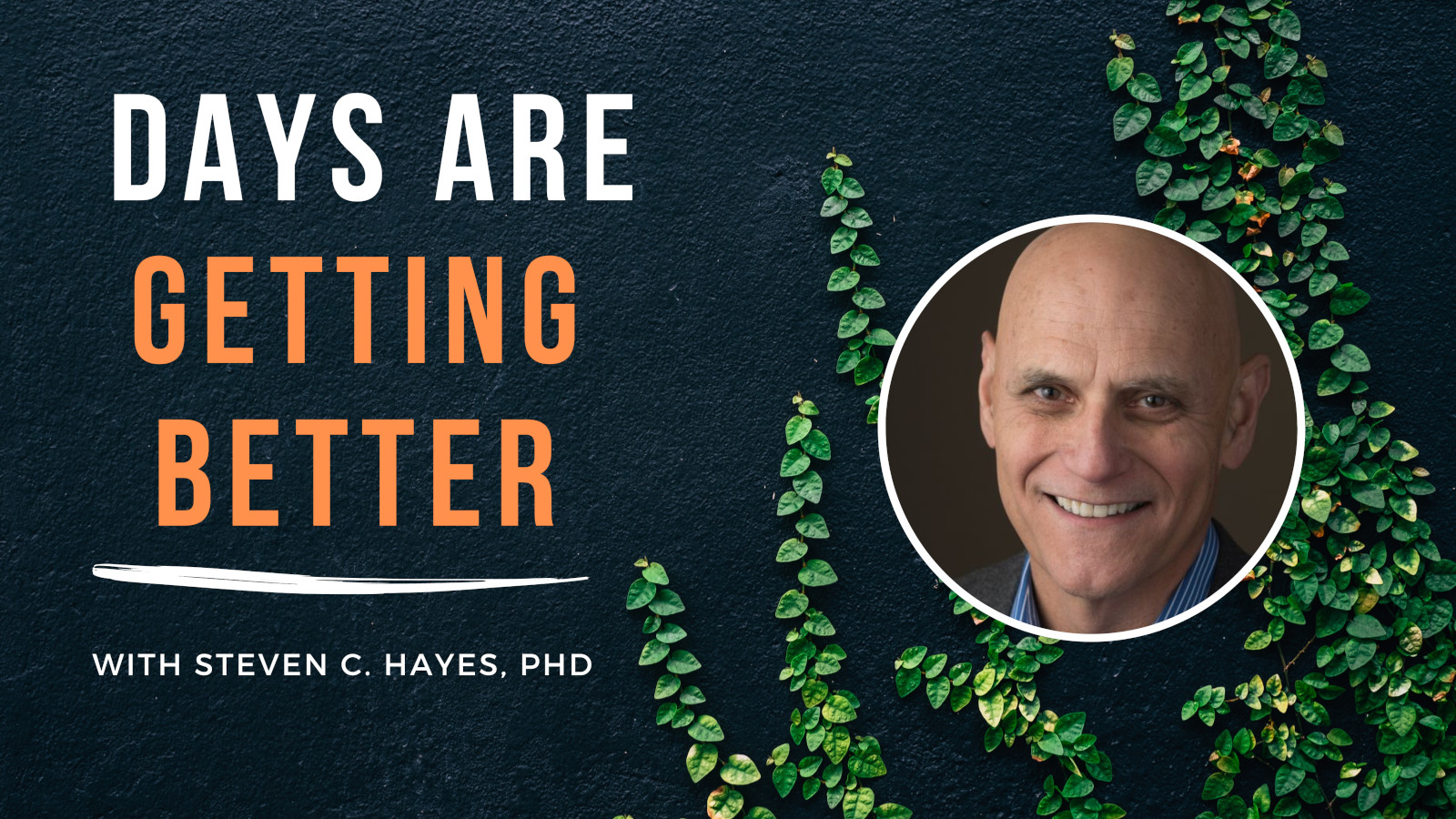What makes us most human is what we care about. In a word, what matters most are our values. The problem is that what we care about is also where we get hurt – so we tend to hide out from our own caring. We keep it from others – if we are really good at it we keep it even from ourselves. Instead of being who we are, we try to be who we are not — out of fear that we are unacceptable, perverse, or untrustworthy. There are built in paradoxes in Acceptance and Commitment Therapy. Here is one: Acceptance is not about change but it is the biggest change there is. So, too, with values. Superficially, it appears as though we need to find our values. Actually, it is more like we need to get out of our own way. And values pull for evaluation: Being right; Doing the “right” thing; Pleasing mommy; no longer feeling badly about oneself. None of that works. None of that is what we are trying to accomplish in ACT work. Here are some questions that might be of help, just to get the right set.
- What if values were a choice?
- What if values were a matter that was between you and you?
- What if what was at sake is a kind of self-liberation — the liberation to be about what you most deeply would choose to be about — not to avoid guilt, or get applause, or otherwise objectify yourself but just to be in the world how you choose to be in the world.
- What if you cannot really do it wrong … you can just do it freely?
Here are some guides that might be helpful.
- Look at what hurts you the most. Look at your deepest sense of vulnerability. What would you have to not care about for that hurt and vulnerability to not be there?
- Think of the most amazing moments in your life … times when you feel most alive. Go inside that memory. What is the larger pattern of caring that makes that moment dear?
- Assume you belong here. Assume you make a difference. Assume your being is not in question. If you took your own sense of vitality, when is it at its highest. What larger pattern of caring embraces that vitality?
- Look not just to the future. Values are “about” that but they show up here and now. If they do not, that is not what we are talking about.
Kelly Wilson has a nice metaphor. You design a house. You build it. You would never then ask “is this my real house?” It would not make sense. This is the house you built. If it is not right for you, you redesign it, remodeling it, or move. In the same way you choose your values. You live inside the life they structure. It does not make sense to ask “are these my real values?” as if your life is a puzzle to be solved. These are the values you’ve been choosing and inside that choice, life can become a process. You are free to choose again, and again, and again. No one can countermand your values – it is one of the few things that are like that (acceptance is another … perhaps why ACT is most about these two processes). Ironically, although values enable evaluation, they cannot be arrived at that way because it skips over choice. We have to let go of others giggling or saying we are wrong. We have to let go of the idea that there is “right way” that obviates the terror and opportunity of taking responsibility for what we stand for. Ironically, although values choices are among the most important thing we can do in life, to make these choices freely we have to hold it all very lightly, and self-compassionately. If you have been holding back perhaps it is time to let yourself free. What do you most deeply want to be about in your life and how does that show up positively here and now? You can let this be informed by your culture, your family, your heroes, or your God but ultimately it is between you and the person in the mirror. If you are willing to stop holding back, you cannot do it wrong because it is a process. Maybe it is time to stop holding back. Maybe it is time to choose.







